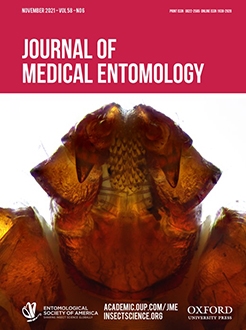Mosquito-borne pathogens have spread throughout tropical regions of the Western Hemisphere causing increased burden of disease in the region. Outbreaks of dengue fever, yellow fever, chikungunya, West Nile, and Zika have occurred over the past several years. Mosquito blood-feeding patterns need to be assayed to assist in determining which vertebrates could act as hosts of these mosquito-borne pathogens and which mosquito species could act as vectors. We conducted bloodmeal analyses of mosquitoes collected at Lomas Barbudal Biological Reserve, a dry tropical forest reserve in Costa Rica. Mosquitoes were collected using backpack aspirators and light, gravid, and resting traps, and then identified morphologically. Blood-fed mosquitoes underwent DNA extraction, PCR amplification, and sequencing of the vertebrate cytochrome b and cytochrome c oxidase 1 genes to identify vertebrate bloodmeal hosts. Several mosquitoes known to vector pathogens were found including Culex (Melanoconion) erraticus Dyar & Knab (Diptera: Culicidae), Cx. (Mel.) pedroi Sirivanakarn & Belkin, Aedes (Stegomyia) albopictus Skuse, Ae. (Ochlerotatus) scapularis Rondani, Ae. (Och.) serratus Theobald, and Ae. (Och.) taeniorhynchus Wiedemann. The most common bloodmeal hosts were basilisk lizards (Basiliscus vittatus) Wiegmann (Squamata: Corytophanidae) in Culex (Linnaeus) species and white-tailed deer (Odocoileus virginianus) Zimmermann (Artiodactyla: Cervidae) in Aedes (Meigen) species. These results show the diversity of mosquito species in a tropical dry deciduous forest and identify associations between mosquito vectors and potential pathogen reservoir hosts. Our study highlights the importance of understanding interactions between vector species and their hosts that could serve as predictors for the potential emergence or resurgence of mosquito-borne pathogens in Costa Rica.
How to translate text using browser tools
5 July 2021
Host-Feeding Patterns of the Mosquito Assemblage at Lomas Barbudal Biological Reserve, Guanacaste, Costa Rica
Patrick L. Gilkey,
Diana L. Ortiz,
Tia Kowalo,
Adriana Troyo,
Laura K. Sirot
ACCESS THE FULL ARTICLE
It is not available for individual sale.
This article is only available to subscribers.
It is not available for individual sale.
It is not available for individual sale.

Journal of Medical Entomology
Vol. 58 • No. 6
November 2021
Vol. 58 • No. 6
November 2021
ecology
feeding-behavior
molecular biology
mosquito-borne disease
tropical entomology





